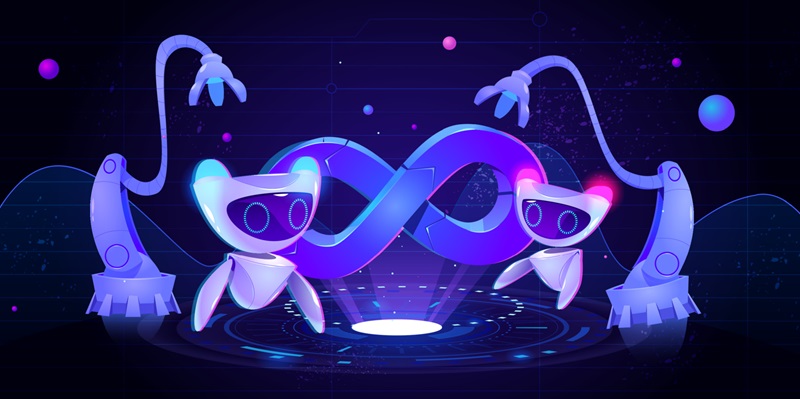In the intricate realm of software development, DevOps professionals are increasingly witnessing the integration of artificial intelligence (AI) into their workflows. A recent survey conducted by Kickstand Research, commissioned by Jellyfish, reveals that 61% of organizations are harnessing AI to some degree in software development. Despite these technological advancements, an alarming 65% of the 604 surveyed software developers and engineering professionals report experiencing burnout. Burnout was identified as the second most significant challenge after maintaining a high-performing team, indicating an urgent issue within the industry that needs addressing.
The Productivity Paradox
While AI adoption has undeniably led to productivity improvements, the survey data suggests that these gains come with their own set of challenges. A whopping 94% of respondents acknowledged AI’s positive impact on productivity, and 81% reported an increase in code quality. Yet, a palpable gap exists between managers and the technical staff regarding the implementation of AI. Notably, 76% of executives believed their teams had embraced AI, while only 52% of developers agreed. This disparity points to a disconnect that undermines the potential benefits of AI, creating a paradox where productivity is up, but so too is the sense of burnout.
Security concerns remain a major hurdle for organizations that have yet to adopt AI. Among such firms, 48% cited security as a barrier, with other notable obstacles being the lack of expertise (34%) and budget constraints (24%). Furthermore, 19% of executives in firms not using AI regard it as a gimmick, reflecting skepticism about AI’s short-term efficacy. Such conflicting views within organizations add another layer of complexity to the conversation around AI’s role in mitigating workload and improving team dynamics.
Managerial Disconnect and Real-World Challenges
The survey highlights a significant disconnect between managerial optimism and the day-to-day realities faced by developers and engineers. Almost half of the engineers surveyed (43%) feel their leadership is out of touch with the challenges they encounter. Issues such as insufficient project visibility (31%) and decreased efficiency, predictability, and productivity (37%) further emphasize this gap. This detachment can exacerbate feelings of burnout among staff, as they cope with the pressures of delivering high-quality work while navigating organizational inefficiencies.
Despite these hurdles, there have been positive developments in the field, such as budget increases and team growth. Over two-thirds of engineering teams received budget increases last year, and 57% experienced team growth, with 56% anticipating further headcount expansion. However, these positive trends have not fully translated into job satisfaction. A significant 34% of developers reported a lack of prospects for advancement within their organizations, and 32% are considering career changes. Yet, despite these challenges, an overwhelming 80% still find their work rewarding, demonstrating their dedication to the field despite the adverse conditions.
The Dual-Edged Sword of AI in DevOps
In the complex world of software development, DevOps professionals are increasingly integrating artificial intelligence (AI) into their workflows. According to a recent survey by Kickstand Research, commissioned by Jellyfish, 61% of organizations are now using AI to some extent in their software development processes. While this tech innovation is notable, it comes amid a concerning rise in burnout among professionals in the field. The survey, which included 604 software developers and engineers, revealed that 65% experience burnout, highlighting a critical issue that needs timely intervention. Burnout has now emerged as the second most significant challenge faced by professionals, trailing only the difficulty of maintaining high-performing teams. The prevalence of burnout not only underscores the pressures within the industry but also calls for immediate strategies to foster a healthier work environment. Given the importance of both team performance and individual well-being, addressing this issue is paramount for sustaining innovation and productivity in software development.

